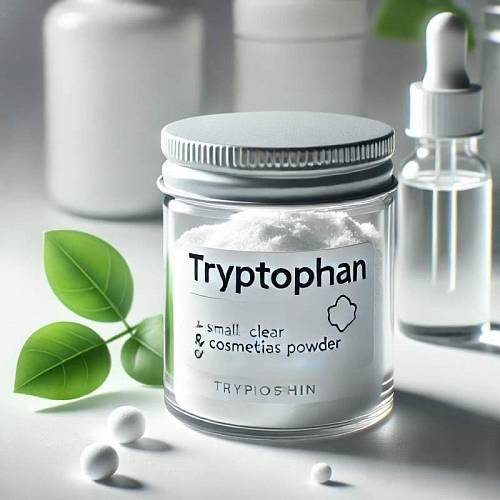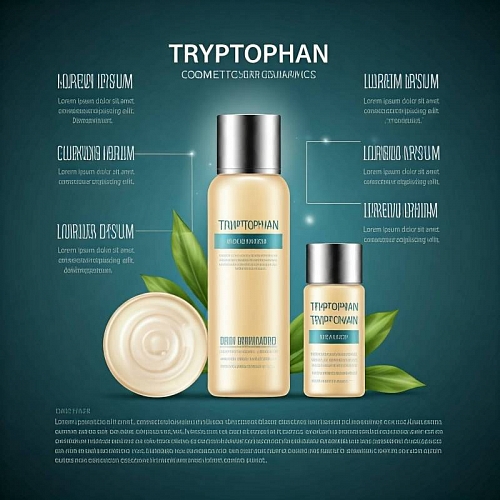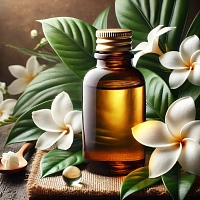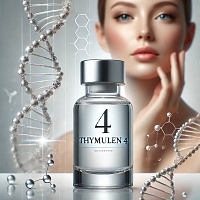-
 Absolutes
Absolutes
-
 Active Complexes
Active Complexes
-
 Actives and Peptides for Cosmetics
Actives and Peptides for Cosmetics
-
 Amino Acids
Amino Acids
-
 Food Flavorings
Food Flavorings
-
 Ayurveda
Ayurveda
-
 Vitamins
Vitamins
-
 Gelling Agents and Thickeners
Gelling Agents and Thickeners
-
 Hydrosols and Floral Waters
Hydrosols and Floral Waters
-
 Hydrolyzed Proteins
Hydrolyzed Proteins
-
 Fragrant and aromatic substances
Fragrant and aromatic substances
-
 Acids, Salts, Alcohols, and Alkalis
Acids, Salts, Alcohols, and Alkalis
-
 Preservatives and Antioxidants
Preservatives and Antioxidants
-
 Cosmetic Raw Materials
Cosmetic Raw Materials
-
 Dyes, Pearlescents, and Glitters
Dyes, Pearlescents, and Glitters
-
 Face Masks, Scrubs, and Dried Flowers
Face Masks, Scrubs, and Dried Flowers
-
 Natural Base Oils for Cosmetics
Natural Base Oils for Cosmetics
-
 Candle Supplies
Candle Supplies
-
 Melt and Pour Soap Bases
Melt and Pour Soap Bases
-
 Base for cosmetics, cream, serum, shampoo
Base for cosmetics, cream, serum, shampoo
-
 Fragrance Oils
Fragrance Oils
-
 Surfactants
Surfactants
-
 Peelings for Skin
Peelings for Skin
-
 Herbal Powders and Plant
Herbal Powders and Plant
-
 Silicones and Conditioning Surfactants for Hair
Silicones and Conditioning Surfactants for Hair
-
 Packaging for Cosmetics and Perfumes
Packaging for Cosmetics and Perfumes
-
 Molds, Packaging, Tools
Molds, Packaging, Tools
-
 Organic Extracts
Organic Extracts
-
 Emollients for Cosmetics
Emollients for Cosmetics
-
 Emulsifiers
Emulsifiers
-
 Essential Oils
Essential Oils
Tryptophan: A Natural Beauty Booster
Tryptophan, an essential amino acid found in various foods, has emerged as a valuable ingredient in the cosmetic industry. Its unique properties, particularly its ability to influence serotonin and melatonin levels, make it a promising component for addressing a range of beauty concerns.
The Benefits of Tryptophan in Cosmetics
- Mood Enhancement: Tryptophan's role in serotonin production can contribute to a more positive mood. When used in skincare products, it may help reduce stress and anxiety, which can manifest in skin conditions like acne or eczema.
- Improved Sleep Quality: As a precursor to melatonin, tryptophan can support healthier sleep patterns. This is crucial for overall skin health, as adequate rest allows for cellular repair and regeneration.
- Antioxidant Protection: Tryptophan can indirectly protect the skin from oxidative stress by supporting the production of antioxidants. This can help prevent premature aging and damage caused by environmental factors.
- Reduced Inflammation: By influencing cellular processes, tryptophan may help regulate inflammation, a common factor in many skin conditions.
Cosmetic Applications of Tryptophan
Tryptophan can be incorporated into a variety of cosmetic products, including:
- Serums and Essences: These lightweight products can deliver tryptophan directly to the skin, providing a concentrated dose of its benefits.
- Moisturizers: Combining tryptophan with hydrating ingredients can help create moisturizers that not only nourish the skin but also promote a sense of well-being.
- Masks: Clay masks or sheet masks infused with tryptophan can offer a targeted treatment for specific skin concerns, such as dullness or uneven tone.
- Hair Care Products: Tryptophan may help improve scalp health and promote hair growth by supporting cellular function and reducing inflammation.
- Makeup Primers: Incorporating tryptophan into makeup primers can create a smoother base for application while also providing potential skin benefits.
A Tryptophan-Infused Cosmetic Recipe: Calming Night Serum
Ingredients:
- 1 ounce aloe vera gel
- 1/2 ounce rosehip seed oil
- 1/4 teaspoon tryptophan powder
- 5 drops lavender essential oil
Instructions:
- In a small glass jar, combine the aloe vera gel and rosehip seed oil.
- Add the tryptophan powder and lavender essential oil.
- Stir well until the ingredients are thoroughly mixed.
- Store the serum in a cool, dark place.
Usage: Apply a few drops of the serum to your face every night before bed. Massage gently until absorbed.
Note: When using tryptophan in cosmetic products, it's essential to consult with a qualified formulator or chemist to ensure proper incorporation and stability. Additionally, individuals with specific allergies or sensitivities should exercise caution and patch test before use.
By leveraging the unique properties of tryptophan, cosmetic manufacturers can create products that not only enhance beauty but also promote overall well-being.
| INCI | Tryptophan | |
| pH | 5.0-7.0 | |
| Other | ||
| Application | Anti-aging cosmetics: Tryptophan is used in creams and serums to improve skin elasticity and combat wrinkles. Skin care products: Included in moisturizers, lotions, and face masks due to its ability to retain moisture and protect the skin. Products for sensitive skin: Added to products to relieve irritation and combat inflammation. Decorative cosmetics: Used in foundations and powders to protect the skin and prevent irritation. | |
| Att brand | USA | |
| Color product | white or slightly cream | |
| Dosage | Cosmetics: 0.5–2% in creams, serums and lotions Dietary supplements: 250–500 mg depending on the intended use Food: up to 3 g per day (as a dietary supplement) | |
| Features | All information presented on the site is for reference only | |
| Minimum count | 1 | |
| Name | Tryptophan, 10 g | |
| Packaging | container for transportation | |
| Packing | 10 g | |
| Properties | Antioxidant properties: Tryptophan helps fight oxidative stress, protecting the skin from harmful environmental influences. Hydration and protection: Tryptophan retains moisture in the skin, prevents it from drying out, and also helps strengthen the skin barrier. Anti-inflammatory properties: It reduces inflammation and soothes the skin, which makes it useful in products for sensitive and problematic skin. Anti-aging action: Tryptophan promotes skin cell renewal and improves its texture, which makes it popular in anti-aging cosmetics. | |
| Purpose | Tryptophan is an important component that is widely used in cosmetics for its anti-aging, moisturizing and restorative properties, as well as a dietary supplement to maintain health and improve mood. Tryptophan is an amino acid that plays an important role in a number of biochemical processes, including the synthesis of serotonin and melatonin, making it an important component for a variety of applications, including cosmetics. Skin cell regeneration Skin hydration and protection Improvement of skin texture and elasticity Soothing of inflamed skin | |
| Solubility | in the water | |
| View | powder | |
| Valid until | 09.2026 | |













 Add to cart
Add to cart Buy in 1 click
Buy in 1 click

 Add a review
Add a review To favorites
To favorites To compare
To compare














